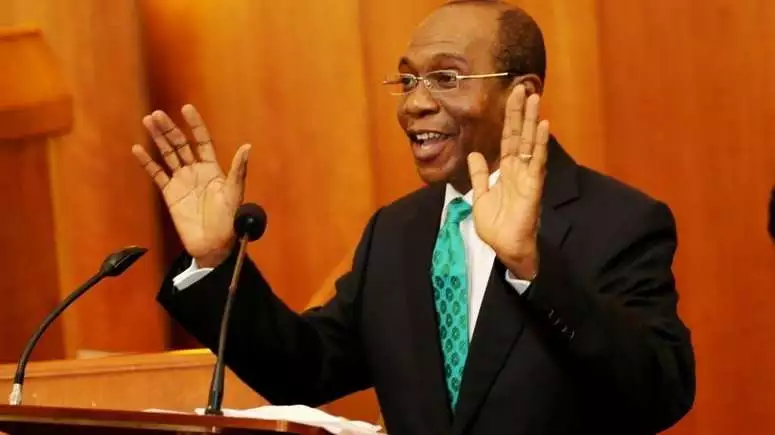The managing director of Sterling Bank Plc, Abubakar Suleiman stuck his neck out, last October when he criticized the CBN for squeezing commercial banks profitability with the continuous increase of the Cash Reserve Requirement, CRR. According to him, the banks will find ways out of the problem, but that the cash available to them has been significantly reduced.
The apex bank imposed the CRR after the banks failed to comply with the Loan to Deposit Ratio, LDR which required Deposit Money Banks, DMBs to maintain a minimum 60 percent of their customers’ deposit for economic development.
Suleiman spoke after the apex bank sequestered the new generation bank N8 billion of its customers’ deposit as punishment for violating the regulatory instrument, an action that obviously did not go down well with the Sterling Bank chief executive at the time, who despite the decision of other commercial banks CEOs to remain cautious on the issue, spoke out to condemn the excessive use of the instrument by the Godwin-Emefiele government bank.
Suleiman criticized the CBN for using the CRR to limit banks’ profit margin because “Beyond the fact that it represents a significant accumulation of liquidity that has not yet been deployed, which means that the banks increasingly have access to liquidity if they ever need it, it would be a squeeze on profitability to the extent that what goes into CRR cannot go into treasury bills or bond,” he said.
In the month under review, the CBN debited erring banks over N1.4 trillion as Zenith Bank Plc, UBA, and Access Plc, topping the list with a total deduction of (N290bn), Plc (N160b), and (N140bn) respectively, deducted from their account.
Other banks affected in the CRR deduction include FBN (N95bn), GTB (N55bn), Polaris (N30bn), Keystone (N30bn), Standard Chartered Bank (N24bn), Fidelity (N15bn), FCMB (N11bn), Ecobank (N11bn), Stanbic (N10bn), WEMA (N10bn), Coronation (N3.9bn), Sterling (N8bn), Citi (N6bn), Union (N5bn), Providus (N5bn), RMB (N5bn), FSDH (N1.5bn), NOVA (N1bn) Globus (N3bn) and Unity Bank (N7bn).
The regulator earlier on October 9, 2020, debited banks of CRR worth N462.7 billion for breach of its lending policy.
Emefiele justifies the CRR thus “We give them incentives that when they lend to the Small and Medium Enterprises (SMES), and private sectors, they will be granted certain dispensations to make them happy while failure to comply will result into taking 50 percent of the un-lent portion of their loans into the CRR.”
Over N5 trillion was deducted directly from erring commercial banks accounts in 2019, but the figure has risen significantly to over N8 trillion in the 2020 financial year, an over 59 per cent increase compared to 2019. Deposit Money Bank, DMBs are therefore, not finding this funny at all, considering that they could face more sanctions from the regulatory authority this year, as their appetite to invest in treasury bills to maximize profit is likely to grow, particularly after the COVID 19 headwind that disrupted banking operations last year.
More banks are talking. For instance, Guarantee Trust Bank, GTB said the bank could have made use of the N565 billion deducted from its account by the CBN to earn more money but, “CRR increase of 127.4% (₦565.1bn), funded through improved Naira liquidity largely from OMO maturities impaired the Group’s ability to take maximum advantage of opportunities to optimize its earnings potential.
In spite of the sanctions the Segun Agbaje-led bank said it appropriated other means ‘to cushion the impact of CRR on earnings through optimization of its US$ liquidity and Revaluation Gains,” which amount to US$1.15bn following the devaluation of Naira against US$.”
According to Zenith Bank Plc, the CRR “coupled with the low-interest yield environment helped reduce our cost of funding from 3.0% to 2.1% and also reduced our interest expense. However, the low-interest environment also affected net interest margin, which declined from 8.2% to 7.9% in the current year due to the re-pricing of interest-bearing assets.”
In January this year, the CBN hit commercial banks with N600 billion debit after complaining of excess cash in the interbank money market, IMM to the tune of over N1 trillion within the first few weeks of the new year, which the apex bank blamed on the increase of inflow of treasury bills also known as Open Market Operations, OMO by banks.
Banks’ demand for treasury bills within the first month of the year rose to close to N700 billion even though the apex bank was only ready to sell bills worth N60 billion, forcing the regulator to implement two Cash Reserve Ratio, CRR debits of N600 billion in two tranches of N400 billion and N200 billion.
The apex bank, had in 2020, increased the CRR to 27. 5 percent from 22.5 percent after complaints that commercial banks in the country were using their idle cash for forex round tripping, rather than lending funds to the real sector of the economy. Keen analysts in the sector insist that it will be difficult for DMBs to deny the allegations, adding that the regulator is using the instrument to control the nation’s rising inflation.
Meanwhile, critics of the Emefiele-led bank said the ‘seized’ cash is being used by the CBN to fund federal government budget deficit.
Discover more from The Source
Subscribe to get the latest posts sent to your email.








